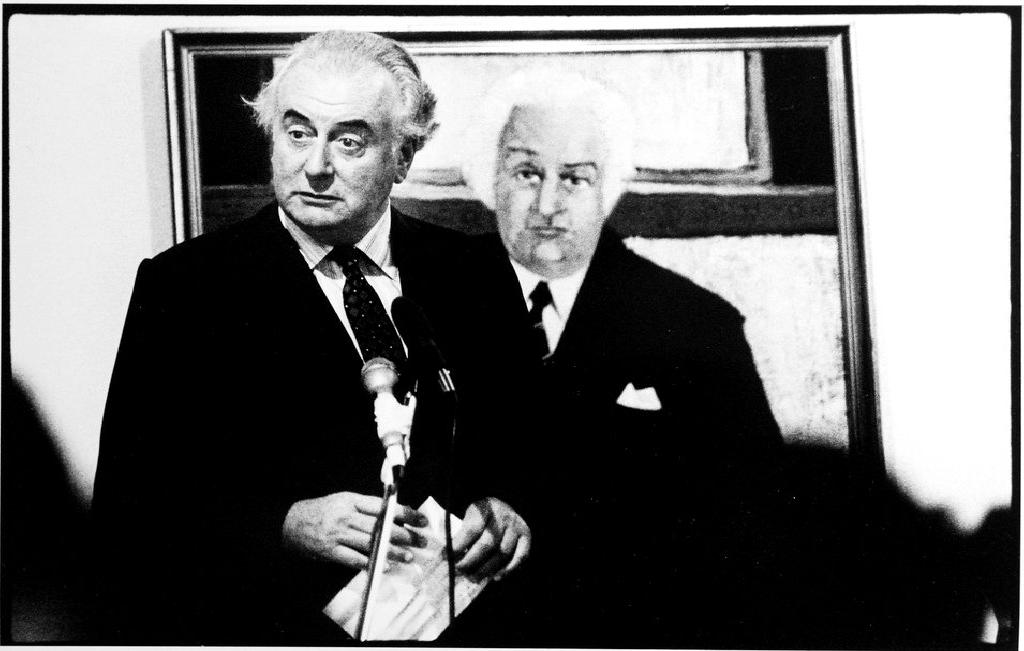Tributes from all sides of politics have flowed for former Prime Minister Gough Whitlam who has died at the age of 98.
Mr Whitlam was Australia’s 21st Prime Minister, serving between 1972 and 1975 and was the leader of the Australian Labor Party from 1967 to 1977.
His time in office was marked by his highly controversial sacking by then Governor-General Sir John Kerr, a polarising event that not only changed the political leadership of the nation but ultimately the course and nature of political debate in Australia.
Prime Minister Tony Abbott said he has instructed that flags be flown at half-mast today and on the day of Mr Whitlam’s State Memorial Service.
Regular parliamentary sittings and Senate estimates sessions for Tuesday have been suspended in line with protocol.
The National Archives of Australia has also compiled a timely video tribute to the late Mr Whitlam.
https://www.youtube.com/watch?v=R15jXBnivYw&list=UU4tmpYcD5R7TjmxQ7sw7TFg
Mr Shorten said Mr Whitlam was “a giant of our movement [and] a great leader of our nation.”
“Like no other Prime Minister before or since, Gough Whitlam redefined our country — and in doing so he changed the lives of a generation — and generations to come,” Mr Shorten said.
“He reimagined Australia – as a prosperous, modern, multicultural nation, where opportunity belonged to everyone.”
Mr Shorten said Mr Whitlam “spent his political life reaching for higher ground” and changed Australia “forever and for the better.”
He cited the key areas Mr Whitlam’s lasting reforms as being healthcare, education, Land Rights for Indigenous Australians relations with Asia and especially China, the return of Australian troops from Vietnam and the abolition of the death penalty.
Echoing Labor’s iconic 1970s election slogan and jingle of “It’s Time” that was so successfully used to capture the spirit and desire for national reform and improvement, Mr Shorten said “it is always time.”
“Gough’s light shines before him – and the memory of his great works will live long in the heart of our nation.”
Labor’s Foreign Affairs spokesperson, Tanya Plibersek, said it needed to be appreciated how much courage it took to make many of the now historic decisions that are now often taken for granted, especially Australia’s relationship with China.
“At that time you’ve got to understand how controversial it was, to be opening up relations with a communist nation,” Ms Plibersek said on Sky News.
“The other great foreign policy achievement is of course returning our troops from Vietnam, bringing back the last of our troops from Vietnam. Again now looking back it seems like the only obvious thing to do and yet at the time incredibly controversial, a very brave move.”
Prime Minister Tony Abbott also paid tribute to Mr Whitlam and his legacy.
“Gough Whitlam was a giant of his time,” Mr Abbott said.
“He united the Australian Labor Party, won two elections and seemed, in so many ways, larger than life.
“He established diplomatic relations with China and was the first Australian Prime Minister to visit China. China is our largest trading partner. That is an enduring legacy,” Mr Abbott said.
“Gough Whitlam recognised the journey that our country needed to take with indigenous Australians. The image of soil passing from Gough Whitlam’s hand to Vincent Lingiari’s is a reminder that all Australians share the same land and the same hopes.”






Mr Whitlam abolished the death penalty? It lasted until 1985 in New South Wales.